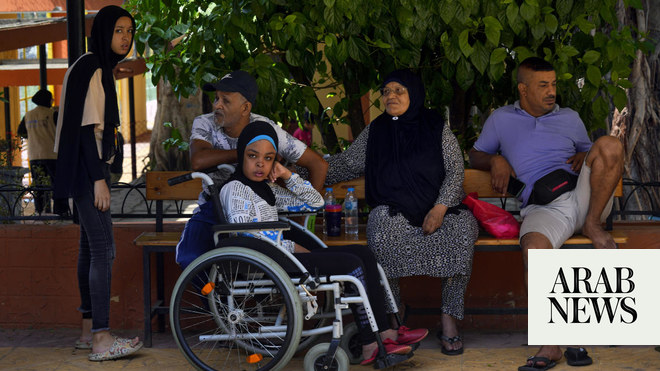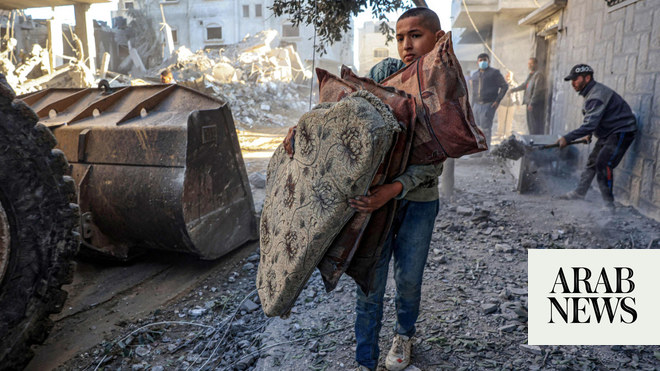
The UN Development Program this month launched its “Human Development Report 2021-2022.” The report goes beyond traditional development metrics and represents an important effort to nail down the vague sense of uncertainty and disillusionment that seems to pervade today’s world. While helping to solidify our understanding of modern global problems, the report also highlights progress and opportunities.
The report opens with a simple but key statement: “We live in a world of worry.” History is replete with wars, disease, poverty and social transformations; nonetheless, today we face unprecedented challenges. As the report notes: “Novel layers of uncertainties are interacting to create new kinds of uncertainty — a new uncertainty complex — never seen in human history.”
The UN agency identifies three “volatile crosscurrents” that are amplifying, complicating and otherwise interacting with other global issues. They also threaten to compound inequalities. At the same time, the pace of change has accelerated immensely.
The first key trend is anthropogenic climate change. This threatens changes that are so profound as to alter “the fundamental frame of reference humans have been operating under for millennia.” The assumptions that have informed the ways many societies approach challenges might not work anymore. The lessons learned from the past may no longer be applicable. Humans will have to dig deep into their ingenuity to adapt. People will have to learn to cope with the uncertainty that climate change poses.
A second trend is societal transformation “on par with the Industrial Revolution.” Multiple factors — including technological developments, transitioning to greener energies and other climate change impacts — are shifting the ways that societies organize themselves. Mitigating and adapting to climate change will require “a fundamental transformation in how societies live, work and interact with nature,” according to the UN Development Program report. Part of the general unease felt around the world likely stems from a basic awareness that many communities’ ways of life will change and the uncertainty over who will lose and who will gain.
A third factor is intensifying polarization found across and within societies around the world. The report presents data that demonstrates that many societies in different parts of the globe have experienced increasing political polarization. Digital technologies play a role in this trend. A related issue is decreasing trust in institutions and people. As a sense of insecurity increases, political extremism also tends to rise.
Despite all of the worry, uncertainty and bad news, the world has still made incredible progress.
Kerry Boyd Anderson
These three trends are driving uncertainties and interacting with many other global developments. The report notes that the COVID-19 pandemic led to a decline in the global Human Development Index for the first time since the index began. The pandemic revealed weaknesses in the global governance system, and the extremely unequal distribution of vaccines highlights global inequalities.
The number of armed conflicts has risen compared to 10 years ago, according to conflict trackers. In particular, the war in Ukraine has had global ramifications and further eroded the norms on which the international political system is based. For the first time in history, “more than 100 million people are forcibly displaced.” People are feeling the rise in insecurity; the report notes that six out of seven people feel insecure and uncertain about the future. Overall, there is a sense of a loss of agency and declines in the belief that people can shape their lives through their own decisions.
Despite all of this worry, uncertainty and bad news, the world has still made incredible progress. While the pandemic wiped out about five years of gains in the Human Development Index, human development today remains far higher than it did even a couple of decades ago. The pandemic took a terrible toll, but scientific developments allowed for the creation of a safe and effective vaccine in record time. By many metrics, humans are far better off today than a generation ago.
Yet, around the world, people are feeling worry and disillusionment. It is essential that this not lead to paralysis. Climate change and other trends will demand that societies and individuals make significant changes, and some of that change will be very difficult. In general, people often struggle to accept change, and now they must accept significant change in a short period of time. The institutions that helped manage 20th-century challenges need to change to address 21st-century problems.
The UN Development Program report does not dwell in doom and gloom. It also highlights opportunities. The technologies that contribute to climate change, polarization and other problems also offer opportunities for more sustainable economic development, bringing people together to solve problems, advancing science and much more. The report calls for an increase in investment, such as in renewable energy, climate change resilience and pandemic response. It also calls for various forms of social insurance, including improving health and education. Innovation is another essential tool as humans adapt to fast-paced change. The report also suggests a framework for helping societies navigate uncertainty.
Throughout history, people have adapted to changes in their environment, societies, economies and more. Now, we need to draw on that ingenuity and adaptation faster than ever. Apathy is not an option. Neither is returning to an imagined past. We will have to move forward, together, embracing creativity and resilience. Tempting though it may be, we cannot give up.
Kerry Boyd Anderson is a writer and political risk consultant with more than 18 years of experience as a professional analyst of international security issues and Middle East political and business risk. Her previous positions include deputy director for advisory with Oxford Analytica. Twitter: @KBAresearch
Disclaimer: Views expressed by writers in this section are their own and do not necessarily reflect Arab News" point of view












